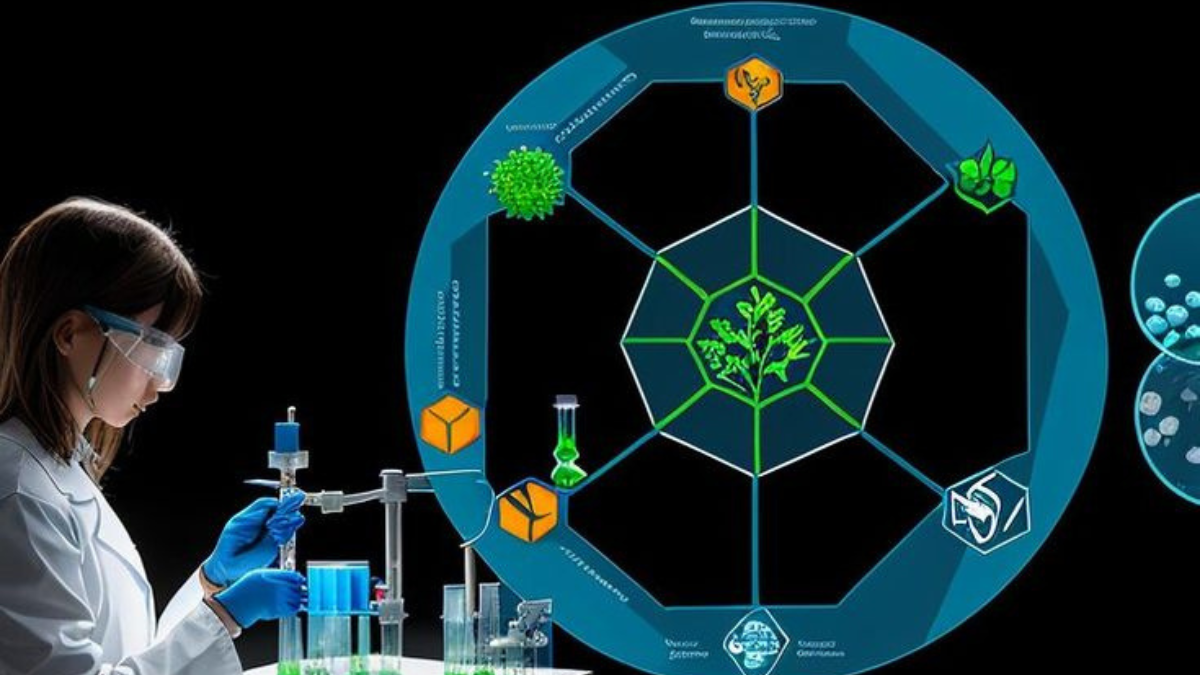Welcome to a journey into the realm of Biocentrism Debunked, a captivating theory that challenges our understanding of the universe and our place within it. In this blog post, we will delve deep into the controversial concept of biocentrism, exploring its claims, criticisms, and the scientific evidence that either supports or refutes its validity. Get ready to uncover the pseudoscience behind biocentrism and unravel the mysteries that lie at the intersection of science and philosophy. Let’s embark on this intellectual adventure together!
The Theory of Biocentrism Debunked and Its Claims
Have you ever pondered the idea that life itself shapes the universe as we know it? Biocentrism is a theory that suggests just that – proposing that biology plays a central role in creating reality. According to this concept, consciousness not only influences our perception of the world but actually creates it. This revolutionary notion challenges traditional views on existence and questions our understanding of the cosmos.
Biocentrism Debunked posits that life and biology are fundamental to the existence of the universe, rather than being byproducts of physical laws. It argues that without consciousness, space and time do not exist independently. Essentially, proponents of biocentrism claim that reality is a product of our minds, with each individual contributing to shaping their own unique experience.
While this theory may seem intriguing at first glance, it has faced significant skepticism from the scientific community due to its lack of empirical evidence and testability. Critics argue that biocentrism falls short in providing concrete proof for its claims and often relies on metaphysical speculation rather than scientific rigor. Despite its bold assertions, biocentrism continues to be a topic of debate among scholars and researchers alike who seek to unravel the mysteries of existence through empirical means.
Criticisms and Debunking of Biocentrism
Biocentrism, a theory proposing that life and consciousness are central to the universe’s existence, has attracted both intrigue and skepticism from the scientific community. Critics of biocentrism argue that it lacks empirical evidence to support its bold claims about reality being dependent on biological observers.
One common criticism is that biocentrism tends to blur the line between objective scientific inquiry and subjective human experience. By attributing cosmic significance to living organisms, some experts argue that biocentrism risks veering into pseudoscience territory by prioritizing personal beliefs over observable facts.
Furthermore, skeptics point out that many phenomena explained through Biocentrism Debunked can be more plausibly understood through conventional scientific frameworks like quantum mechanics or neuroscience. While proponents of biocentrism may find solace in its philosophical implications, critics emphasize the importance of grounding theories in verifiable data and rigorous experimentation. In essence, the criticisms directed towards biocentrism underscore the ongoing debate between spiritual interpretations of reality and empirically-based scientific understanding.
Scientific Evidence Against Biocentrism
Biocentrism, a theory proposing that life and consciousness are central to the universe, has faced scrutiny due to its lack of empirical evidence. Critics argue that while it may offer a philosophical perspective, it falls short in providing scientific backing. One of the primary challenges against biocentrism is the absence of concrete experimental data supporting its claims. The theory relies heavily on subjective interpretations rather than verifiable observations and measurements.
Additionally, Biocentrism Debunked contradicts well-established scientific principles such as Darwinian evolution and quantum mechanics. These discrepancies raise doubts about the validity of biocentrism as a scientifically sound concept. Moreover, proponents of biocentrism often cherry-pick findings from quantum physics to support their claims, ignoring the broader context in which these theories operate within the field. While biocentrism may spark intriguing philosophical discussions, its credibility within the realm of science remains questionable due to a lack of substantial empirical evidence.
Alternative Explanations to the Phenomenon
Have you ever considered exploring alternative explanations to the phenomenon of biocentrism? While this theory posits that life and consciousness are central to the universe, there are other perspectives worth considering. One alternative explanation could be the concept of emergent properties, where complex systems like living organisms exhibit unique characteristics that cannot be solely reduced to their individual parts. This idea suggests that consciousness may arise from the interactions of biological processes rather than being a fundamental aspect of reality.
Another viewpoint to ponder is panpsychism, which proposes that consciousness is inherent in all things at some level. This perspective challenges the notion that consciousness is exclusive to living beings and opens up new possibilities for understanding the nature of reality. Exploring these alternative explanations can offer valuable insights into how we perceive life, consciousness, and existence itself. It’s essential to keep an open mind and consider diverse viewpoints when delving into complex phenomena like biocentrism.
The Role of Personal Beliefs in Science
Science is often viewed as a realm of objectivity and evidence-based inquiry, but the role of personal beliefs cannot be overlooked in shaping scientific perspectives. Our individual beliefs, values, and experiences inevitably influence how we interpret data and construct hypotheses. Researchers bring their own biases to the table, whether conscious or subconscious, impacting the direction of their studies. These inherent predispositions can sometimes lead to confirmation bias, where scientists may unconsciously seek out information that aligns with their preexisting beliefs.
Moreover, societal norms and cultural backgrounds also play a significant role in shaping scientific paradigms. Different communities may have varying interpretations of data based on their unique belief systems. It’s essential for scientists to remain vigilant against allowing personal biases to unduly influence their research findings. By acknowledging the impact of personal beliefs in science, researchers can strive towards greater objectivity and integrity in their work.
Conclusion: Is Biocentrism a Valid Theory?
In the grand scheme of scientific understanding, Biocentrism Debunked falls short in providing a robust explanation for the mysteries of the universe. While it presents an intriguing perspective on consciousness and reality, the lack of empirical evidence and the presence of logical fallacies weaken its validity as a scientific theory. As we navigate through the complex realms of science and philosophy, it is essential to critically evaluate ideas that challenge conventional wisdom. Biocentrism may spark curiosity and contemplation, but without substantial support from experimental data and peer-reviewed research, it remains more akin to pseudoscience than a credible theory. While pondering our place in the cosmos is a fascinating endeavor, embracing evidence-based theories rooted in rigorous scientific methodology leads us closer to unraveling the true nature of existence. So, is Biocentrism a valid theory? The verdict leans towards skepticism until concrete proof emerges to substantiate its bold claims.











